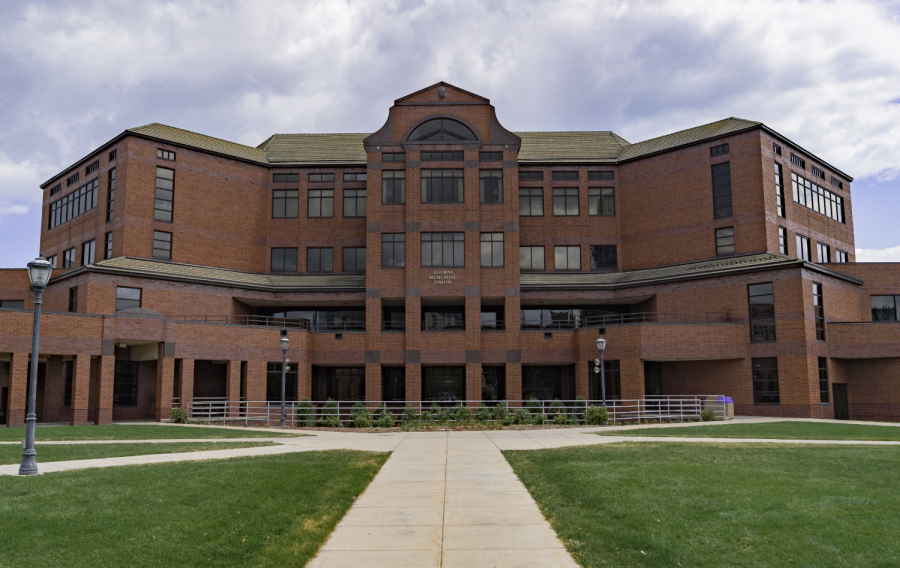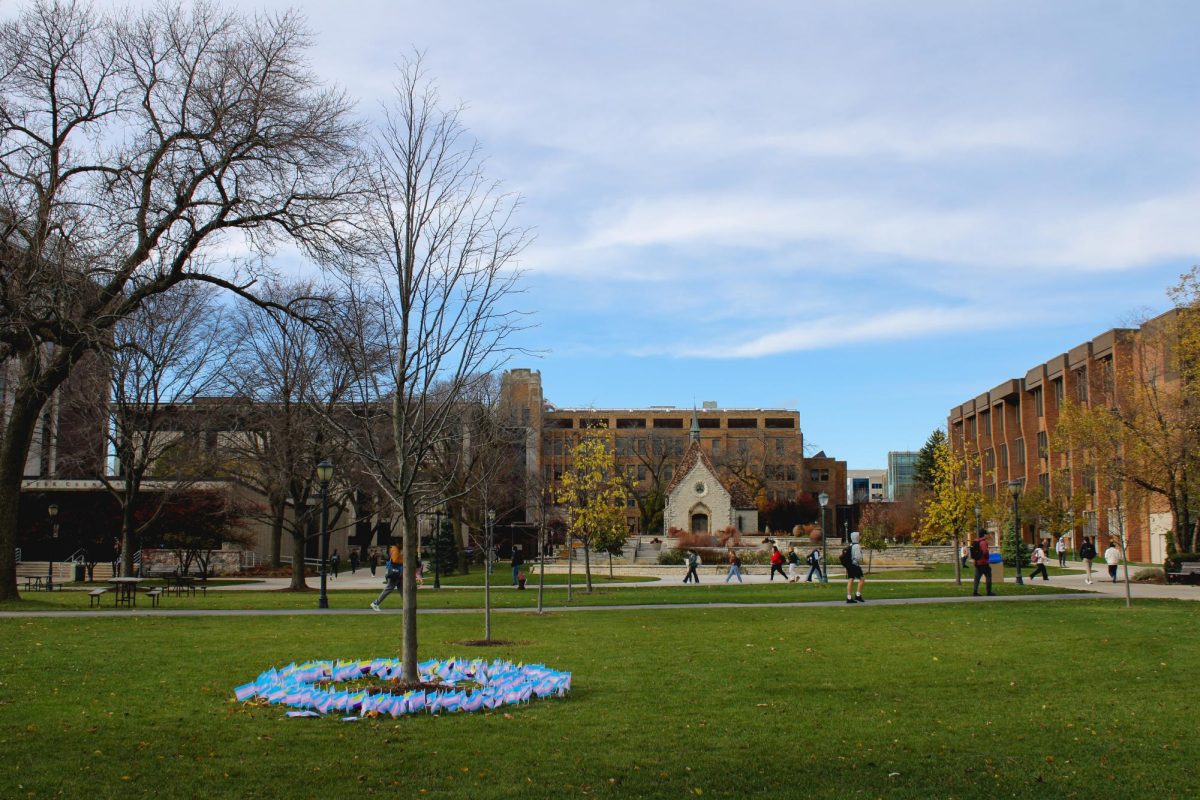Marquette University has run out of time to prepare students to safely return to campus for the fall 2020 semester.
Spikes in COVID-19 cases at Michigan State University, University of Notre Dame, North Carolina State University and University of North Carolina at Chapel Hill have forced these universities to move classes online after just one week of school.
The steep increase in cases can be attributed to large social gatherings and parties at off-campus locations. While residence halls and on-campus buildings are adhering to COVID-19 health safety guidelines, students are finding ways around the rules.
The university must provide clear communication and take necessary precautions to ensure that we are not the next university to shift to online teaching after only a few days of in-person classes.
As many students moved in this past weekend and undergraduate classes are to resume Aug. 26, Marquette needs to provide clearer communication about its actions moving forward.
Though the university required all undergraduate, graduate and professional students to complete a COVID-19 training course before classes resume, it is difficult to gauge how effective this will be on campus. Students may not practice or use the information provided to them. Additionally, it is unclear whether or not there will be consequences for students who do not take the modules.
While there will be reminders posted around campus for students to wear face masks, wash their hands and stay six feet apart when possible, there is no punishment or enforcement for not wearing masks or social distancing.
Marquette students are simply asked to sign a pledge, promising administrators that they will keep the campus safe. This is not enough.
As countless college students across the country have demonstrated their unwillingness to do adhere to necessary safety measures, following COVID-19 health and safety guidelines must be mandatory, not optional. There should be no debate. After months of careful planning to bring students back, both by administrators and faculty, students need to be held accountable for their careless actions if they choose to party or attend large gatherings near campus.
There have already been parties seen in off campus apartments and classes have not even started yet.
Students are coming into direct contact with each other, faculty, staff and members of the Milwaukee community, and by not following the necessary guidelines of wearing a face covering and distancing, they put themselves and others at risk for contracting and spreading the disease.
They are endangering the lives and health of so many.
Regardless of Marquette’s policy, wearing a face covering in public spaces in Milwaukee is required as of a July 16 mandate. Wearing a face covering is also a mandate in Wisconsin as of Aug. 1.
Individuals caught violating state and local face mask mandates could risk paying a $200 fine, and Milwaukee businesses repeatedly failing to enforce face coverings could face fines up to $500.
Having no enforcement of social distancing not only goes against city, state and national health safety guidelines, but it continues to put members of the Marquette and Milwaukee communities at risk. Moreover, not holding students accountable off campus is counterintuitive to the precautions and protocols being upheld and practiced on campus.
Universities like Indiana University and Purdue University are suspending students after being caught partying, as this breaks school bans on partying in large social gatherings in an effort to limit the spread of COVID-19 on campus.
It is unclear how students will be held accountable for not complying with COVID-19 safety measures at Marquette. Students may go through the Student Conduct system, or could be charged with failure to comply with university officials, violating local mandates or endangering the health and safety of community members, dean of students Stephanie Quade said.
With people’s health and lives on the line, it is imperative now more than ever to be clear and communicative with the campus community on how students will be held accountable for being reckless and acting irresponsibly.
Moreover, the university said there will only be one COVID-19 testing site on campus. Marquette faculty and staff can only use the on campus testing site if they have a doctor’s referral and are symptomatic.
Additionally, the university informed students in the COVID-19 training that they will be receiving a “Welcome Kit” with hand sanitizer, a thermometer and a cloth mask, which is the second most effective type of mask, according to a Duke University study.
Students, faculty and staff will also have to fill in an online questionnaire before entering campus buildings or class.
If students are asymptomatic, it will be impossible for them to know whether or not they have COVID-19. As seen around the world, young adults are contracting and spreading COVID-19 at higher rates than any other age group.
With the lack of testing capacity on campus and the inability to detect if they have the virus or not, students could be unintentionally spreading the virus.
Additionally, with a rise in COVID-19 cases, in-person classes could be moved online, potentially forcing students to return to hometowns.
If Marquette truly believes in cura personalis, that must extend to our families as well. It is unclear how the university is caring for us if it does not take the necessary precautions to ensure we are not spreading the virus to our home communities and thus destroying the foundations from which we have come.
Marquette has obligations to its students, faculty and staff, but also to Milwaukee. Allowing the spread of the virus to go unchecked will only worsen the communities it claims to support. All of us, Marquette included, have a responsibility to do better.
The most outrageous request made by Marquette was to return to campus in-person with no testing requirement before moving in.
Students had the option to move all of their classes online and opt out of the semester, but other universities like Purdue University, Indiana University and University of Alabama who offer in-person classes provided their students with required tests before moving in to further ensure the environment on campus was going to be safe. Some colleges and universities are also testing students multiple times a week.
Though Marquette opened up residence halls early for students to begin moving in Aug. 23, it did not require students to self-quarantine or get tested upon arriving on campus, though it did recommend students get tested.
Additionally, the university has not shared information as to whether or not Marquette University Police Department will be involved in stopping the spread by enforcing face coverings on campus as well as preventing students from gathering in large groups at parties.
Though there is adherence to COVID-19 safety guidelines in classrooms, dining halls and residence halls, it is difficult to monitor student behaviors in on and off campus apartments.
There is not enough time to self quarantine for two weeks, and the COVID-19 testing site does not have the capacity to test all students within the first week of classes. Vice president for student affairs Xavier Cole sent out an email to students Aug. 18 asking them to stay as home as much as possible before arriving on campus, but gave no instruction to quarantine once being on campus.
The university should have better prepared for students returning to campus.
But now it is too late. Students have moved in. Parties have begun. Marquette University will most likely be next to transition to online classes because we were not prepared.
Moving forward, the university needs to provide clearer information to both students and faculty to mitigate the spread on campus.
With Marquette’s campus being in the middle of the Milwaukee community, it is disrespectful and not fair for the university to put citizens’ lives in danger because students are on campus.
Editorial topics by the Marquette Wire are decided at weekly meetings between members of the executive board. The editorial is crafted with leadership by the executive opinions editor. The executive board consists of the executive director of the Wire, managing editor of the Marquette Tribune, managing editor of the Marquette Journal, general manager of MUTV, general manager of MUR and nine additional top editors across the organization.









